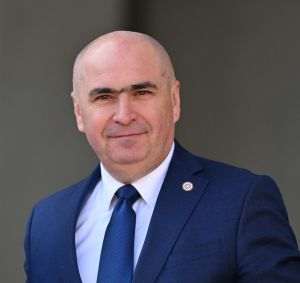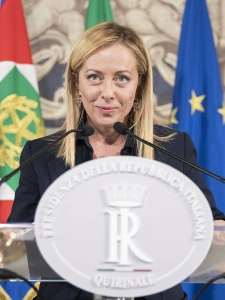Come November, Romanian pupils and students may become roommates with immigrants and refugees from Syria, starting in November, according to the intentions of the Ministry of Education.
The news that the institution is inventorying the schools' and universities' capabilities to host immigrants and refugees has caused waves of controversies, with some of them saying that that couldn't be true, others saying that the action is a test of the public opinion or that it is meant to incite people. What is certain is that the Ministry of Education has sent the Inspectorates an address of that nature, to which some of the institutions have actually responded : the University of Bucharest has announced it can make available 80 seats in the dormitories of of Măgurele, and the Polytechnical University - 50 seats.
On August 27th, 2015, deputy prime-minister Gabriel Oprea has summoned a meeting of the National Committee For Special Emergency Situations, to "evaluate the risks concerning the possible security impact as a result of the increase in the immigration phenomenon on Romania's borders", which led to the passing of Decision no. 2/2015 "concerning the enacting of the courses of action to handle the immigration phenomenon on Romania's borders".
According to the law, immigrants and refugees should be hosted in the asylum centers of the Ministry of Internal Affairs, which would be eligible to receive approximately 1000 people.
However, the Romanian Authorities have found the "salutary solution". The Ministry of Education and Scientific Research has drafted an address which it sent to the school inspectorates and the Universities whereby it asked them to evaluate the capacity of the teaching units in question to provide support "in the event of a massive influx" of immigrants.
It is not clear whether this proposal came from the National Committee For Special Emergency Situations or whether it has been the result of an interpretation made at the level of the Ministry of Education and Scientific Research, but it is so amazing that it requires clarifications and immediate explanations from the authorities. It is not an offense to the refugees to assume that people with experience fighting for ISIS are hiding among them.
Thus, it may be true there is no pressure currently, but the Romanian authorities are getting ready for the worst.
Could this have a connection with the mention made on September 8th by MP Laszlo Borbely, in a debate, that Romania may be allocated an additional 4600 refugees? In such a case, the aggregated lodging capability of the asylum centers of the Ministry of Internal Affairs would clearly be exceeded. But even so, the idea of hosting refugees whom the authorities have very limited abilities of checking the past of in schools and universities, is aberrant because it defies any logic of anti-terrorist protection.
• Europe - Terminus Paradis
The European Affairs Commission of the Chamber of Deputies and the Senate have organized yesterday a debate on the issue of migration in the European Union and the immigrants crisis in Europe, which was also attended by the representatives of the parliamentary commissions for foreign policy, defense and public order and the representatives of the Common Special Commission for Romania's Schengen Space accession. The initiative came from Laszlo Borbely, the president of the Foreign Affairs Commission of the Chamber of Deputies.
The technical support for the political discussions was provided by the Ministry of Internal Affairs, the institution directly responsible for dealing with the refugees which will be relocated in Romania, through its representatives which attended the event: Bogdan Tohăneanu, secretary of state in the Ministry of Internal Affairs, seconded by police quaestor Ioan Buda, the head of the General Police Inspectorate of the Border Police. Answering the questions addressed by the parliament members, the former said that Romania's commitment it to take on, over the course of two years, 1785 refugees, of which 1705 that have arrived in the EU space and 80 found outside the European Community perimeter. The number has been proposed to the European Commission based on the estimates concerning the lodging which the Ministry of Internal Affairs has available, which approximately stands at 950 - 1000 people, with a possibility for extension. The Romanian authorities have expressed in Brussels their preference for the people relocated to Romania to be Syrians, selected from the ones hosted by Greece, "based on practical considerations": in Romania there exists a Syrian community, which can facilitate the integration of the refugees. The relocation process will be gradual: most likely in November this year a first group of 300 people will arrive, and then 100 each month.
Bogdan Tohăneanu insisted that "currently, there is no migration pressure on Romania's borders, and the Ministry of Internal Affairs is ready for any potential exceptional situations". His statement is entirely accurate, but strictly for the time being.
In the debate hosted in the Parliament's Palace, the members of the Commissions for European Affairs of the Chamber of Deputies and the Senate, in unison with Leonard Orban, the presidential advisor on European issues, have repeated the fact that Romania must be insist on the preservation of the principle of voluntary acceptance of the refugee quotas. Based on their common attitude, it could be deduced that on a European level there are pressures which are being exercised against the position currently expressed by the countries belonging to the Visegrad group (Poland, the Czech republic, Slovakia and Hungary), to reject the mandatory refugee quotas - which is an official proposal repeatedly submitted by Germany and France and apparently tacitly supported by Jean Claude Junker, the president of the European Commission. This migration triad insists that Europe receive refugees, which it would then distribute to the EU member states.
In fact, this wind of demographic change on a European level, which is coming from Germany mostly, has also been felt during the debate hosted yesterday in the Romanian Parliament: more than half of the time taken by the discussions was spent on discussing the problems raised by the "integration" of the refugees, not their temporary relocation to Europe. In light of the FRONTEX statistics, according to which 60% of the refugees are in the 18 - 25 age bracket, it becomes clear that their arrival in Europe will be permanent, because part of old Europe wants young blood.
























































